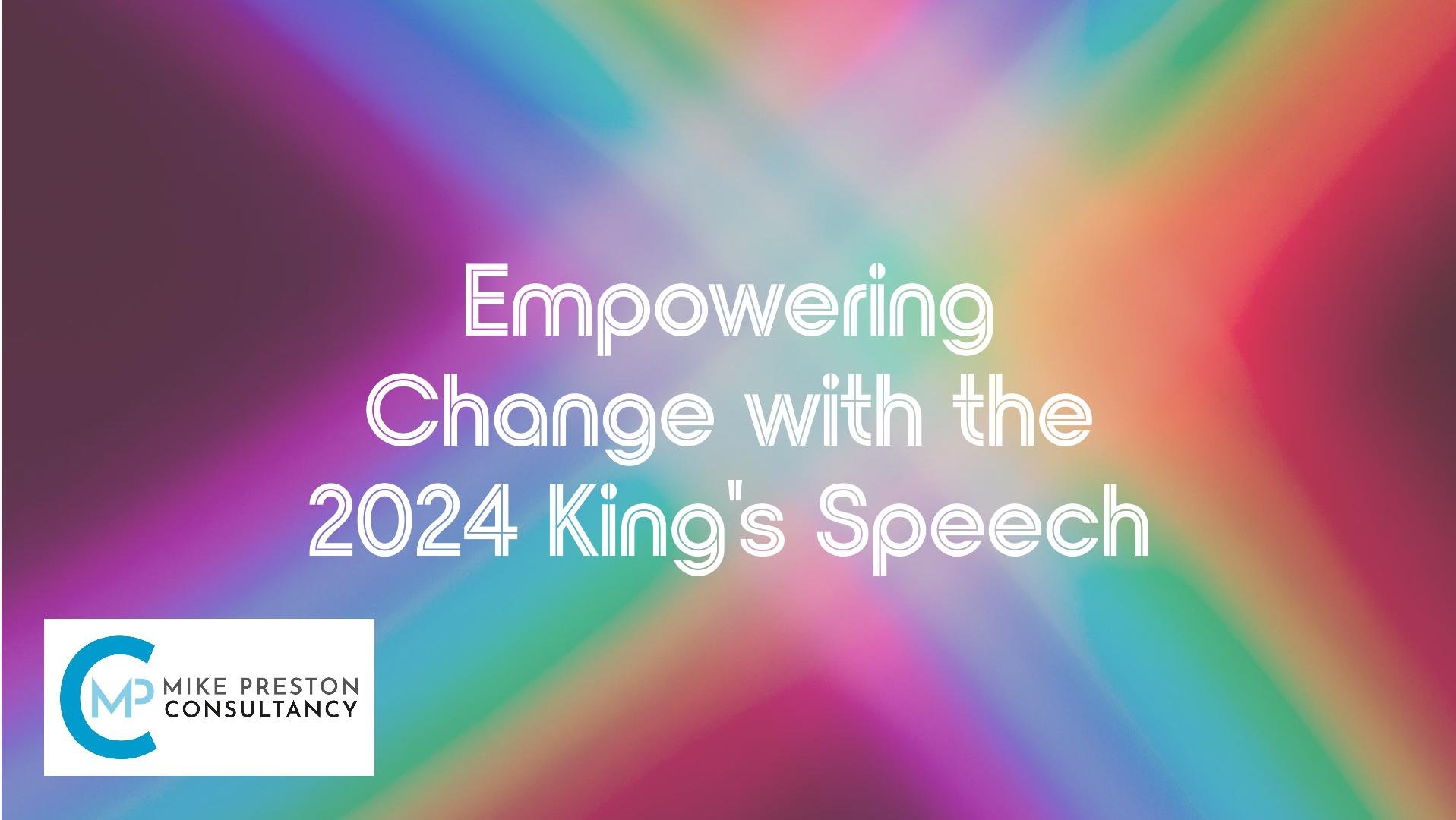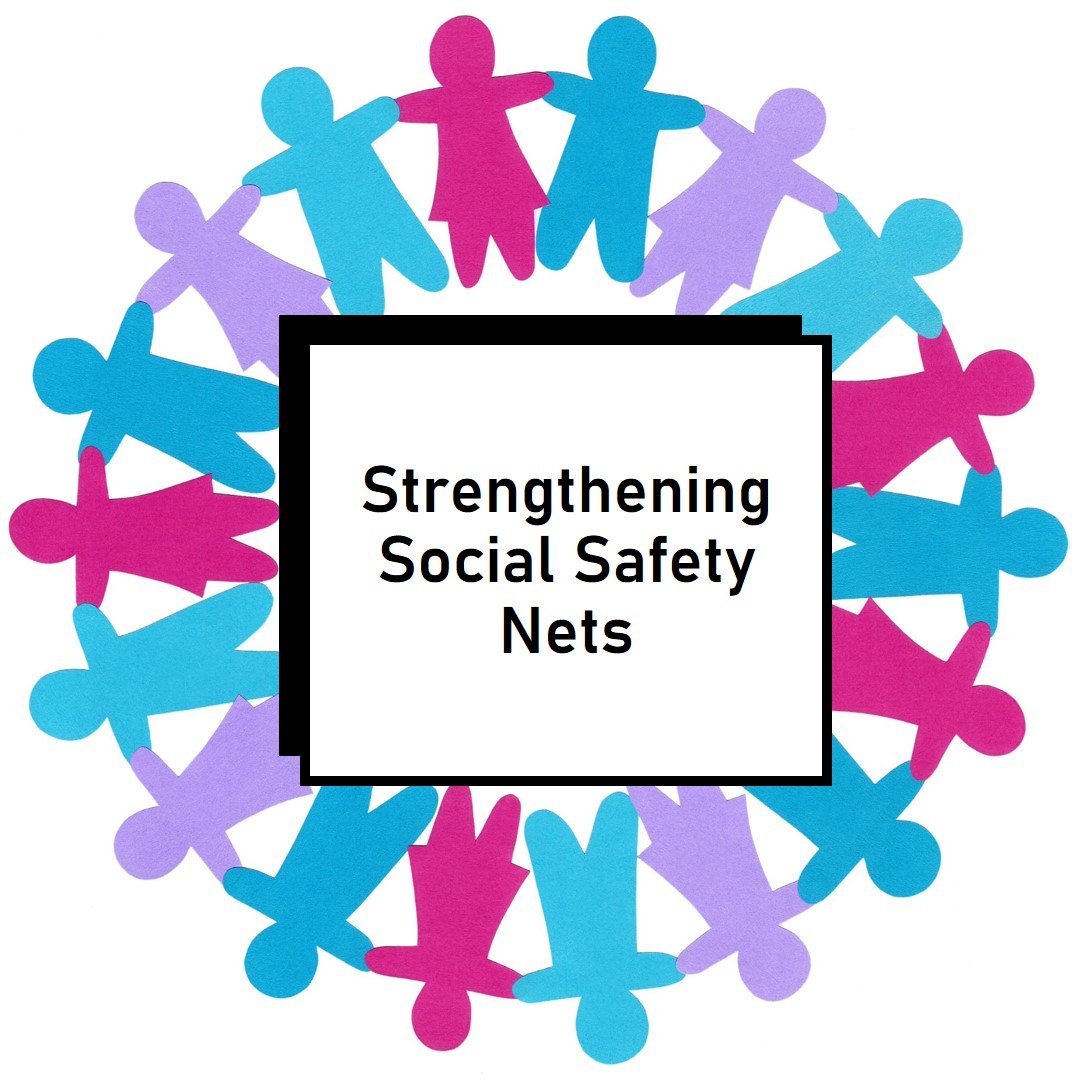Empowering Change: The 2024 King's Speech and Its Impact on Charities
In his highly anticipated 2024 King's Speech, His Majesty touched upon numerous crucial issues facing the nation, some of which hold significant ramifications for the charitable sector. As charities across the United Kingdom strive to address deep-seated societal challenges, the announcements in this year’s speech unveiled both pressing hurdles and promising avenues for growth. Let’s delve into the key points and explore what they mean for charities navigating this evolving landscape.
Strengthening Social Safety Nets
One of the flagship announcements in the 2024 King's Speech was the commitment to bolster the social safety net, including increased funding for mental health services, homelessness prevention, and food security programs. For charities already working tirelessly in these areas, this presents a dual-edged sword.
Opportunities:
Government Partnership: With increased funding, charities can look forward to partnering more closely with government bodies, leveraging resources to scale their impact.
Increased Public Awareness: High-profile initiatives can elevate public awareness around the issues charities are addressing, potentially boosting donations and volunteer support.
Challenges:
Competing for Funds: As the government channels more funds to social programs, charities may find themselves competing for these same grants and funding opportunities.
Integration Complexities: Aligning charitable initiatives with new government policies and programs might require significant adjustments and re-evaluation of existing strategies.
Embracing Technological Innovation
The speech also highlighted a national drive towards embracing technological innovation, underscored by investments in digital infrastructure and skills training. For charities, particularly those lagging in technological adoption, this focus ushers in transformative possibilities.
Opportunities:
Enhanced Outreach: Digital tools can revolutionize how charities engage with their audiences, from fundraising to awareness campaigns, making it easier to reach a broader and more diverse demographic.
Operational Efficiency: Adoption of advanced technologies can streamline operations, reducing overhead costs and increasing transparency and accountability to donors.
Challenges:
Digital Divide: Smaller, grassroots charities may struggle to keep pace with required technological advancements, potentially widening the gap between well-resourced organizations and those operating on tighter budgets.
Training and Adaptation: Ensuring staff and volunteers are adequately trained in new technologies can be a daunting and resource-intensive process.
Environmental Commitments
His Majesty’s speech underscored an ambitious environmental agenda aimed at tackling climate change, including initiatives that encourage eco-friendly practices and sustainable development. This green pivot offers a unique intersection for charities focused on environmental and social causes.
Opportunities:
Sustainable Funding Sources: Grants and funding dedicated to environmental sustainability can open new streams of financial support for charities aligning their missions with ecological goals.
Collaborative Ventures: Environmental initiatives often require multi-stakeholder collaboration, providing charities with opportunities to partner with businesses, governments, and other nonprofits in innovative ways.
Challenges:
Compliance Requirements: Navigating new environmental regulations and ensuring compliance can be challenging, especially for smaller charities with limited resources.
Balancing Priorities: Charities might find it difficult to balance their core missions with new environmental mandates, leading to potential mission-drift.
Economic Measures and Community Support
Finally, addressing economic resilience and community support was a cornerstone of the 2024 King's Speech. With a focus on local economies and bolstering support for small businesses, charities operating at the community level may find themselves at the heart of revitalization efforts.
Opportunities:
Community Empowerment: Charities focused on economic empowerment and community development can collaborate on initiatives designed to bolster local economies, creating synergies that drive collective growth.
Volunteerism Boost: Economic revitalization often leads to increased civic engagement and volunteerism, benefiting charities in both human resources and local endorsement.
Challenges:
Resource Allocation: Economic measures might prioritize business recovery over direct charity support, necessitating strategic resource planning for continued efficacy.
Funding Shifts: As economic priorities shift, charities may need to diversify their funding strategies, ensuring they remain sustainable in changing financial climates.
Conclusion
The 2024 King's Speech lays a complex yet potentially rewarding path for charities across the United Kingdom. By addressing these latest governmental priorities and aligning their missions and operations strategically, charities can not only navigate newfound challenges but also seize emerging opportunities to amplify their impact.
As we move forward, it’s imperative for the charitable sector to remain agile, innovative, and collaborative, ensuring that these announcements serve as catalysts for positive change, ultimately strengthening the fabric of our society. Charities must stay informed, adaptable, and proactive to harness the full potential of this evolving landscape, turning challenges into stepping stones for a brighter, more inclusive future.
We'll be aiming to address some of these topics in future blogs, and reflect the development needs of the sector in our training and resources.
Sign up to our newsletter to make sure you always get our latest updates and opportunities.






